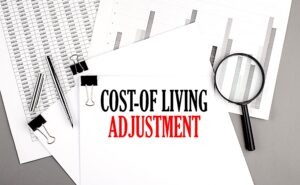
The alleged onset date is the day you claim that your disability began. This is not necessarily the day you were diagnosed, but the day that your disability began preventing you from working. You note your alleged onset date on your disability application. The Social Security Administration (SSA) will review the date and your medical files to verify its accuracy. The SSA may accept the date or change it.
Below, we explain what the alleged onset date (AOD) means for Social Security disability and why establishing the correct date for your AOD is so important. For help applying for disability benefits in Pennsylvania, call Berger and Green at 412-661-1400 and request a free consultation.
How do I calculate my AOD?
There are two primary factors to consider when determining your AOD:
- Your last day of work: The date you became incapable of engaging in what the SSA calls “substantial gainful activity” (SGA) is a big factor in when the SSA will deem you disabled. If you are making more than a certain amount of money each month ($1,170 in 2017), the SSA will consider you capable of engaging in SGA, and, therefore, not disabled. The day you became incapable of engaging in SGA is the date you should write down as your AOD.
- Medical records: Your medical records and other evidence should coincide with your AOD, confirming the date your condition progressed to the point that you could no longer work. Your doctor should have noted your restrictions and impairments in your file.
40+ years of experience from strong, knowledgeable, compassionate attorneys.
Start A Free EvaluationWhy is my AOD so important?
Your AOD is important because it affects the amount of retroactive disability pay you are entitled to. If you are approved for Social Security Disability Insurance (SSDI) benefits, federal law stipulates that you are entitled to retroactive benefits for up to 12 months prior to the date you applied for benefits, if you were disabled that entire duration.
The earlier your AOD, the more retroactive benefits you are entitled to. Misjudging your AOD or writing down the wrong date on your application could cause you to lose thousands of dollars in retroactive benefits. Berger and Green can review your paperwork and verify the accuracy of your AOD before you send in your application.
Note: The SSA does not award retroactive benefits for Supplemental Security Income (SSI), so your AOD is less important if you are only applying for SSI. If approved for SSI, you will simply begin receiving benefits beginning the month you apply, providing that Social Security determines that you met the disability requirements on that date.
We know you’re hurting. We can help. Free case evaluations, home and hospital visits.
Contact Us Now For HelpHow much retroactive pay will I receive?
As we mentioned above, you can receive up to 12 months of retroactive SSDI benefits. So if, for example, your SSDI monthly benefit amounts to $1,000/month and you are entitled to all 12 months of benefits, you will be entitled to a $12,000 settlement check for retroactive payments.
However, to receive the full 12 months of retroactive benefits, your AOD must be at least 17 months prior to the date you filed your disability application. This is because there is a five-month waiting period from the time you become disabled during which the SSA will pay you nothing. In other words, for SSDI applicants, the first five months after your AOD are not compensable.
You need an attorney with the experience and dedication to give your case the care it deserves.
Start A Free EvaluationCan the SSA change my AOD?
Your AOD is only a starting point for the claims examiner reviewing your case. The examiner will review all your records and then establish an established onset date (EOD). The EOD is the date the SSA has decided that you first met the medical, vocational, and other eligibility requirements for disability benefits.
“If the medical and other evidence, and the entitlement or eligibility factors, are consistent with the AOD, the AOD is also the EOD,” explains the SSA. If the SSA disagrees with your AOD, your EOD will be different. The SSA goes by the EOD, not the AOD, when determining your retroactive benefits. So, if you disagree with the EOD and think you are being shortchanged, contact a disability lawyer from Berger and Green straightaway.
We can address all the legal hurdles that may be keeping you from getting a fair settlement.
Speak To An Attorney TodayWhat do I do if the SSA changed my AOD?
In some instances, the SSA changing your AOD will not negatively impact your benefits. This can occur when the EOD the SSA establishes is more than 17 months prior to the date you filed you application. For example, if your AOD is August 1, 2015 but the SSA determines your EOD was actually July 1, 2015, you are actually entitled to more benefits.
However, if the SSA changes your AOD and the new EOD will effectively reduce the amount of retroactive pay you will receive, you have the option to appeal your case. Appeals are not just for denied benefits. You retain the right to appeal any major SSA decision, such as the amount of benefits the SSA grants you or the EOD it establishes.
Understand, though, that if you appeal your case to have Disability Determination Services, an administrative law judge, or the Appeals Council reconsider the EOD, it will reassess your entire file — not just your EOD. This means it could review your disability determination and potentially reverse your original approval.
To protect your best interests, have a Social Security Disability Lawyer at Berger and Green assist you with your appeal.
Can I afford a disability lawyer to help with my benefits?
Yes. At Berger and Green, we never require upfront payment from our clients filing for disability benefits. Rather, we only get paid if you win your case, and our payment, which is regulated by the government, comes directly from any settlement you receive. There are never surprises or hidden fees. Our fees are small in comparison to the lifetime of benefits we can assist you with obtaining.
For questions about alleged onset dates, the application process, or filing an appeal in Pennsylvania, call Berger and Green today at 412-661-1400 for a free consultation.









